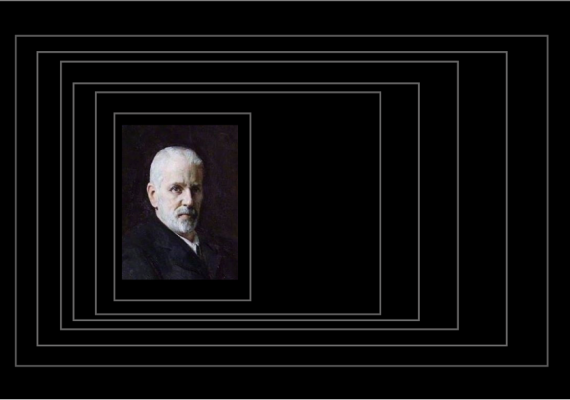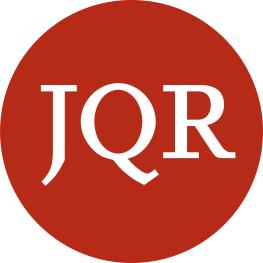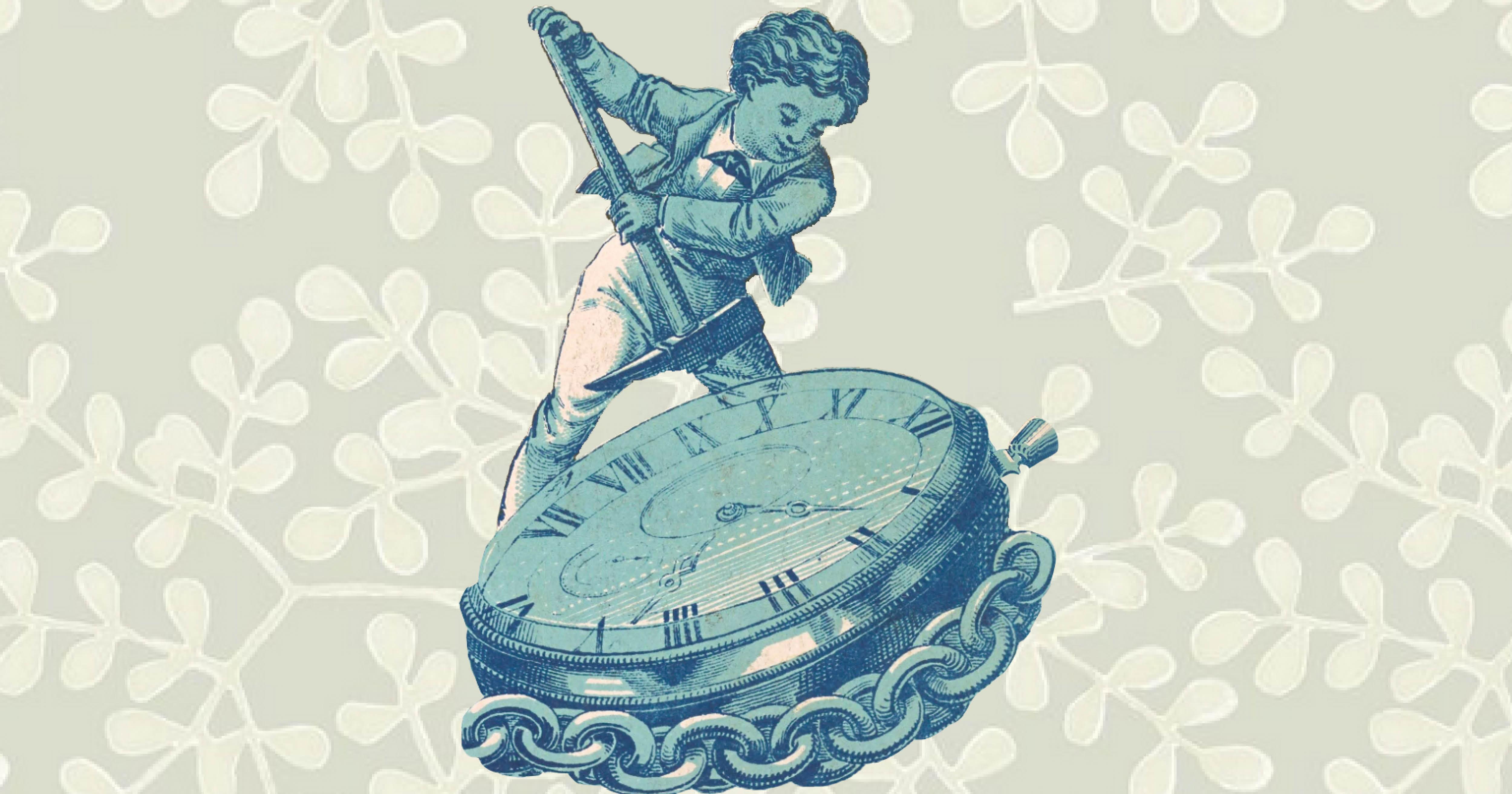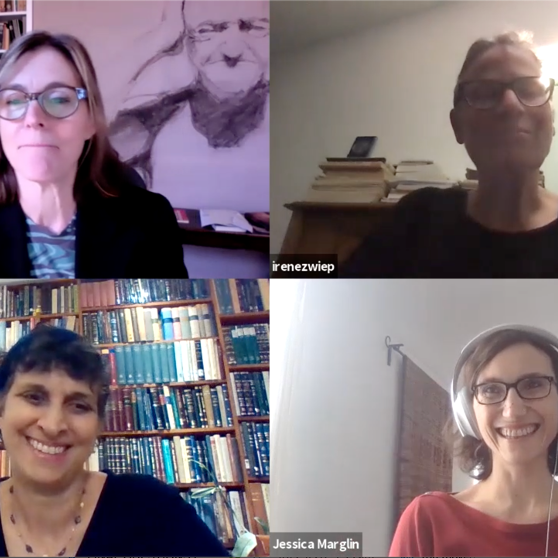“What I Found Surprised Me”: Old Wisdom for the New Century
Read for yourself the Old Series essays discussed in our anniversary forum.

“What I found surprised me.” This sentiment, voiced by Benjamin Sommer in his essay on biblical theology, was one shared by all of the essayists in our recent forum marking JQR’s 130th anniversary. Six scholars chose essays from our “Old Series,” the earliest issues from around the turn of the twentieth century, and used those essays to talk about their own fields today.
Here, we link to the essays our authors found most fascinating so you can read them for yourself. Because of their age, these essays are all in the public domain, free to access.
EVE KRAKOWSKI
Krakowski builds her essay on Adolph Neubauer’s brief scholarly note, “Elhanan, Son of Shemariah ben Elhanan,” in which Neubauer published what may be “the first scholarly edition of a Geniza fragment: two sheets … bearing a partial copy of a letter sent by Sherira b. Ḥananya (ga’on of the Iraqi yeshiva of Pumbedita in the late tenth century) to his loyalist Avraham b. Sahlān in Egypt.” Underscoring the journal’s leading role in Geniza scholarship, Krakowski shows the complex ways that “that the field’s beginnings remain central to its future.”
JONATHAN DECTER
Decter was drawn to what he sees as the productive “instability of the journal’s disciplinary and linguistic boundaries” in its earliest numbers. Through a selection of early essays, he describes the impact of an era in which the editors assumed that its readers would be able to read Arabic as Jewish language, opening a range of questions about identity, boundaries, and canon.
- Adolf Neubauer, “Joseph Derenbourg,” JQR 8.2 o.s. (1896): 189–92.
- Moritz Steinschneider, “An Introduction to the Arabic Literature of the Jews. I,” JQR 9.2 o.s. (1897): 224–39.
- Hartwig Hirschfeld, “The Arabic Portion of the Cairo Geniza at Cambridge,” JQR 15.2 o.s. (1903): 167–81.
- S. Levy, “Is There a Jewish Literature?” 15.4 o.s. (1903): 583–603.
- W. Bacher, A. Wolf, and S. Levy, “What is Jewish Literature?” JQR 16.2 o.s. (1904): 300–29.
- Hartwig Hirschfeld, “M. Steinschneider’s ‘Arabische Literatur der Juden,’” JQR 16.2 o.s. (1904): 408–13.
ELISHEVA BAUMGARTEN
Baumgarten, herself a historian of medieval Jewish childhood, was delighted by Solomon Schechter’s “The Child in Jewish Literature.” In an age when children, women, and social history were very much marginal interests, Schechter’s 1889 essay reminded Baumgarten of “the need to be modest when outlining scholarly ‘discoveries,’” even, she says, when our questions move us in new directions.
IRENE ZWIEP
Zwiep had fun with the rhetorical feints of the book review—reading behind what appeared to Hirschfeld to be the dusty pedantry of a scholar in his decline to exhume a major scholar’s cri de coeur. Contra Hirschfeld, Steinschneider’s bibliographies were, according to Zwiep, like the cultures he idealized: “porous and hybrid, not closed and static like the modern nation state he found himself inhabiting.”
- Hartwig Hirschfeld, “M. Steinschneider’s Die arabische Literatur der Juden,” JQR 16.2 (1904): 408–13.
JESSICA MARGLIN
Marglin reads the political present that animated the scholarship of David Castelli in his only work in English. In the Talmud’s movement between particularistic and universalistic ideas of afterlife, Castelli found useful models of “complexity and nuance” that seemed to respond usefully to the dichotomous demands of his own time. As Marglin shows, Jews can and must balance the tradition’s deep demands for distinctiveness even as it champions a more politically palatable universalism.
- D. Castelli, “A Conjecture on Job vi.4,” JQR 1.3 o.s. (1889): 286.
- David Castelli, “The Future Life in Rabbinical Literature,” JQR 1.4 o.s. (1889): 314–52.
BENJAMIN SOMMER
Benjamin Sommer’s dive into the archives destabilized the “commonplace that until recently Jews were not interested in biblical theology.” He found a range of nuanced and sophisticated essays on biblical theology, descriptive and constructive. Focusing largely on several essays by JQR’s cofounder Claude Montefiore, Sommer discovered modern problems and themes echoed in Montefiore, who, he says, “recognize[d]s that the history of ideas moves in more than one direction. Not all biblical critics have caught up to him even today.”
- C. G. Montefiore, “Many Moods in Hebrew Scriptures,” JQR 2.2 o.s. (1890): 142–65.
- C. G. Montefiore, J. Edwin Odgers, and S. Schechter, “The Doctrine of Divine Retribution in the Old Testament, the New Testament, and the Rabbinical Literature,” JQR 3.1 o.s. (1890): 1–51.
- C. G. Montefiore, “Some Notes on the Effect of Biblical Criticism upon the Jewish Religion,” JQR 4.2 o.s. (1892): 293–306.
- C. G. Montefiore, “Hebrew and Greek Ideas of Providence and Divine Retribution,” JQR 5.4 o.s. (1893): 517–90.
- C. G. Montefiore, “A Note on Inspiration,” JQR 6.3 o.s. (1894): 586–95.
- C. G. Montefiore, “Unitarianism and Judaism in Their Relations to Each Other,” JQR 9.2 o.s. (1897): 240–53.
- Cyrus L. Sulzberger, “The Unity of God,” JQR 9.4 o.s. (1897): 723.
- R. Travers Herford, “A Unitarian Minister’s View of the Talmudic Doctrine of God,” JQR 2.4 o.s. (1890): 454–64.
- Joseph Jacobs, “II.–Browning’s Theology,” a subsection of Jacobs and Marian von Glehn, “Browning as a Religious Teacher,” JQR 2.3 o.s. (1890): 230–56.
- C. G. Montefiore, “Liberal Judaism in England: Its Difficulties and Its Duties,” JQR 12.4 o.s. (1900): 618–50.
- C. G. Montefiore, “Should Biblical Criticism Be Spoken of in Jewish Pulpits?” (pp. 302–16), published as a part II along with M. Joseph’s “Biblical Criticism and the Pulpit,” JQR 18.2 o.s. (1906): 291–316.
- A. H. Sayce, “Polytheism in Primitive Israel,” JQR 2.1 o.s (1889): 25–36.
- Felix Coblenz, “Biblical Criticism in Religious Instruction,” JQR 19.1 o.s. (1906), 1–23.



